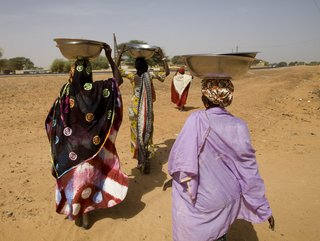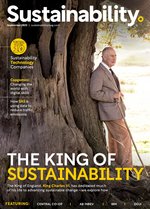United Nations on climate change and gender equity

What are your first thoughts when learning that Earth has seen 20,000 years of change in the space of 170, due to global warming? Consequently, the homes of 200 million people will be below sea level in 70 years and a million species will be extinct – Fiji is currently struggling with being rapidly subsumed by the seas surrounding it. The Arctic Circle saw t-shirt temperatures in 2020, where Verkhoyansk, Russia, recorded a sweltering 38°C. Plastic pollution, extreme weather and famine are only set to increase. The positive news? We have until 2030 to limit the damage as much as possible.
Whether you live on the coast, in a scorching hot country, or one that is usually lined with grey skies and clouds, global warming affects us all. Yet the climate crisis is not gender neutral, as girls and women experience the greatest impacts, amplifying gender inequalities that affect their health, safety and livelihoods.
Climate change exacerbates the existing outcomes of entrenched gender inequality. For example, the majority of the world's poor are girls and women, who are also likely to be more dependent on natural resources, with less access.
They’re also more likely to inherit the burden of looking after children and elderly relatives while taking on the responsibilities of securing food, water and fuel for cooking and heating. As a result, girls and women walk greater distances to obtain resources, taking up valuable time that could be used for education or work. However, as water shortages are increasing across the globe, women and children are likely to walk further for less water – especially in arid and hot countries.
To tackle these issues, the United Nations has set up a number of Sustainable Development Goals, with the sixth – Clean Water and Sanitation – focusing directly on women and climate change. “It is important to highlight that lack of access to clean water, sanitation and hygiene affects mainly developing countries, particularly in Sub-Saharan Africa and South Asia,” Selin Calik, Climate Change Scientist and Green Energy Observer at the United Nations says.
“Women are disproportionately affected by growing water scarcity and inadequate sanitation because of their specific hygiene needs and their role in collecting water. Tackling discrimination and social norms in relation to water management would allow societies to leverage the role of women in better-functioning water systems, wider access and inclusive economic benefits for communities.”
Worldwide, women and girls spend an estimated 200 million hours – daily – collecting water. “This is a gigantic waste of valuable time,” Selin adds. “Just imagine – those 200 million hours add up to 8.3 million days, or more than 22,800 years. In a hypothetical scenario, it’s as if a woman started to walk with her empty bucket in the Stone Age and didn’t reach home with any water until 2022.
“All that time wasted collecting water can cause serious problems. It cuts short the hours spent caring for children, supporting families or empowering themselves with education.”
Unfortunately, the list doesn’t end here.
Climate change catalyses extreme weather and natural disasters, which girls and women are less likely to survive, according to research from the UN. This is a result of disparities in mobility, information, access to resources and decision-making roles. What’s more, once disaster relief has arrived, girls and women are less likely to receive assistance as men are deemed essential for labour, adding further to the cycle of vulnerability. When disasters force families to leave their homes, girls and women are likely to fall victim to rape, trafficking, adolescent pregnancy and young marriage.
Women’s crucial role in fighting the climate crisis
Although girls and women are disproportionately impacted by climate change, they are uniquely positioned to help find the solution.
While women are less likely to be in positions of power, research has shown that climate-change solutions are more effective when women participate in national and community decision making. They also provide a strong body of knowledge that can be used in climate change mitigation, disaster reduction and in creating strategies for a more sustainable future.
In fact, billions of women across the globe make decisions that impact the environment – and, more specifically, climate change – every day, from cooking meals to their purchasing power.
“Research shows women are powerful agents of change in the fight against climate change: gender-equal representation has led to policy making with better outcomes for the environment,” the UN states.
With this in mind, we need to encourage more women to enter the sustainability space, to ensure their unique viewpoints and skill sets are being utilised.
“A lot of the time, when we go to conferences, we don’t see a lot of women on the stage. And, even if they are on, they don’t receive the same amount of air time as our male counterparts,” Michelle Li, Founder and CEO of Clever Carbon and Women and Climate, shares.
“There's a lot of focus on investors, VCs and the really shiny objects – such as direct air capture and green energy hydrogen technologies that will pay dividends in the future – but no real focus on what women are doing to make an instant change. For example, there are women right now who are creating their own solutions by opening zero-waste shops, but investors don’t think these solutions are as sexy.
“I tend not to look at the climate crisis through the lens of how women are disadvantaged,” Michelle says, “but rather by focusing on how we can help women thrive. I believe that a big part of this is supporting women and creating environments which enable them to exchange ideas and discuss topics.
To encourage more women into the sector, Michelle launched Women and Climate, a non-profit that aims to create a joyful, safe space for women to learn and talk about climate. “I think there's a lot of women who want to educate themselves,” Michelle says, “but they don't know where to start. Women and Climate was founded to empower women by ensuring they don’t feel alone when doing their bit to contribute to the climate crisis.”
Through Women and Climate, Michelle connects women with like-minded members to educate and inspire one another on climate issues. To set things off, she organised a dinner at a vegan restaurant and allocated space for 12 women to attend. Nine months on, the dinners now take place in different cities across the globe, including New York, London, Paris and Brussels, each of which sell out in a matter of days.
“Many people associate climate with doom,” Michelle says, “but a lot of us in the community that are taking climate action actually don't feel like that. By taking action and surrounding yourself with like-minded individuals, you feel empowered and hopeful. Friendships also form through these meets, so although we all have a passion for climate, we also discuss everyday topics, too, such as what we’re watching on Netflix and how we’re spending our evenings.
Although figures on climate change may seem daunting, Michelle reinforces the important role that each and every one of us plays to ensure we’re doing our bit to carve a better future.
“There’s something that everyone can do today,” she explains. “You don’t need a new degree or to switch your job, but you can join communities and take control of your own learning and carbon footprint. Personally, I find working in the sustainability sector to be incredibly empowering and it gives me the chance to do something I love every day while making a positive change. I think that’s really special.”
*************************************************
For more insights into Sustainability - check out the latest edition of Sustainability Magazine and be sure to follow us on LinkedIn & Twitter
Other magazines that may be of interest - EV Magazine | Energy Digital
*********************************************
BizClik is a global provider of B2B digital media platforms that cover 'Executive Communities' for CEO's, CFO's, CMO's, Sustainability Leaders, Procurement & Supply Chain Leaders, Technology & AI Leaders, Cyber Leaders, FinTech & InsurTech Leaders as well as covering industries such as Manufacturing, Mining, Energy, EV, Construction, Healthcare + Food & Drink.
BizClik, based in London, Dubai & New York offers services such as Content Creation, Advertising & Sponsorship Solutions, Webinars & Events.







